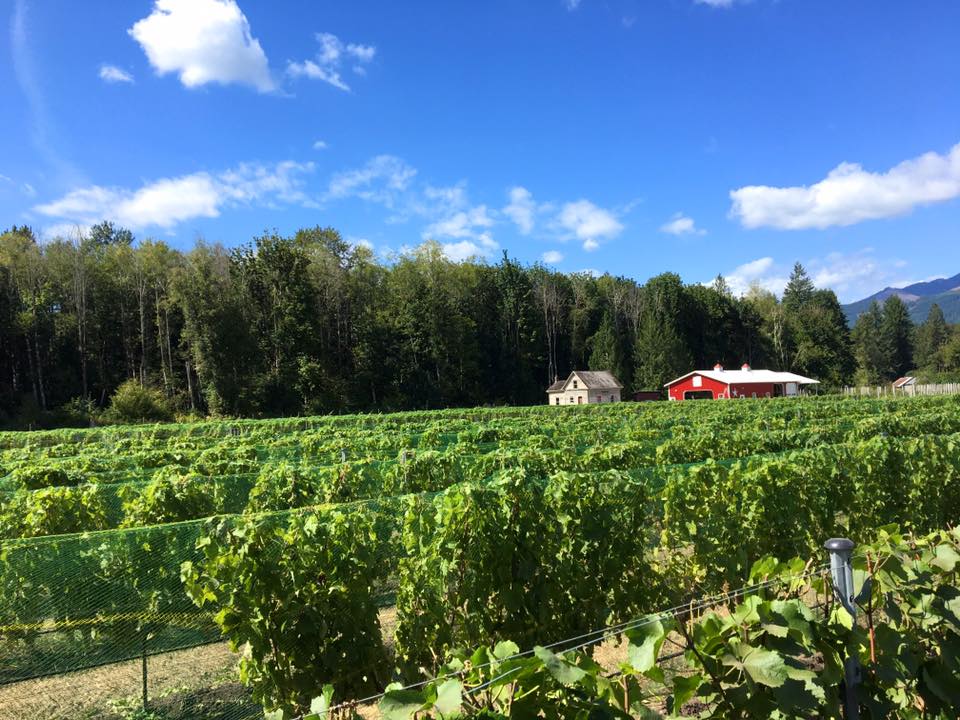There is a saying from Filipino writer Jose Rizal that goes, “The youth are the hope of our future.” It is a short but powerful sentence, and one that holds much merit at that. The old saying holds true in the case of Griffin Berger and his fledgling apple and grape farming enterprise, Sauk Farm. Berger, a 2016 graduate of Washington State University, is the owner and operations manager of Sauk Farm, and one of the youngest in the business. Sauk Farm has been up and operational for almost two years now and they produce four delicious types of apples (including their flagship honeycrisp) and various winegrape varietals.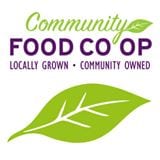
Born and raised in the Skagit Valley, Berger grew up in and around some of the most fertile farm country in Western Washington. Following his time at Mount Vernon High School, Berger went on to Washington State University. It was here the foundation for Sauk Farm would begin to grow. Berger decided to study Integrated Plant Sciences, with double majors in field crop management and fruit and vegetable management.
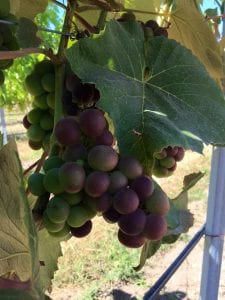
Berger says his time at Washington State University played a big role in shaping him into the farmer he is today. Originally entering school with a plan to study in some field of agriculture, he started studying viticulture and enology at first. After a few classes he realized it wasn’t the route for him.
“After one semester I made the decision to dual major in fruit and vegetable management and field crop management,” Berger says. “Once I got into my major’s core classes I was totally amazed. I had become immersed in classes with professors who truly loved teaching and excelled at it.”
Sauk Farm derives its namesake from the Sauk Mountain, which it is conveniently located at the base of. This location is strategic, as the soil around the area is rich with tons of microfauna and nutrients, largely due to being at the junction of the Skagit and Sauk Rivers. Berger says this results in bountiful amounts of soil perfect for growing organic crops, with the soil’s organic matter content reaching between eight to 10 percent.
Berger prides himself on producing fruit at Sauk Farm that is nutrient dense and of a very high quality. Sauk Farm is certified organic by the Washington State Department of Agriculture and is in the process of ensuring that all of their apples and grapes transition into organic crops.
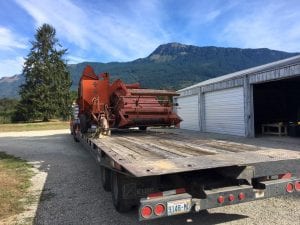
Berger says it is good to grow crops organically because it is better for everyone involved in the process. “Growing crops organically requires using only inputs derived from natural products and managing inputs and operations in a way that considers environmental health and sustainability,” Berger says.
Berger’s crops are grown with what’s best for the environment in mind, aiming to impact the surrounding environment as little as possible. All of their organic apples and grapes are grown in an ethical and sustainable manner. There are many facets that go into producing Sauk’s high-quality organic produce, such as soil quality, pest control, microfauna diversity and frequent nutritional tests.
One of the important aspects to improve and encourage healthy nutrient intake for his fruit, is to plant cover crops that will benefit the growth of his apples and grapes. Cover crops such as white clover, barley, mustard and ryegrass are grown between the apple trees and grapevines. These cover crops attract native pollinating insects, which promote healthy growth for Berger’s crops.
It isn’t always easy to manage cover crops though. Berger says they can be problematic and must be managed properly. These crops must be planted at the right time and have enough time to establish for the apples and grapes to reap the full benefits.
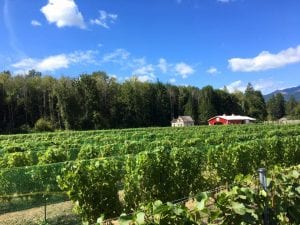
“It is incredibly important to attract native pollinators to support natural biodiversity on your farm and to ensure successful pollination of crops,” Berger says.
He says different crops require different amounts and kinds of pollination. For example, apples require cross pollination by bees or other natural pollinators in order to set fruit. And native pollinators such as mason bees and bumble bees are much more effective pollinators than the Italian Honeybee, which is the typical bee seen in commercial honey operations.
Currently, Sauk Farm only sells their wine grapes and apples but they are working on crafting new products using their crops, which will soon be up for sale. Berger has apple chips, wine and various kinds of fruit juice in the works. All Sauk Farm juice contains one hundred percent fruit and no additives. Their apple and grape cider will be available in the fall and they are looking to roll out plum and peach cider down the road.
Sauk Farm was recently selected to receive Community Food Co-op Next Step Project funds. According to Community Food Co-op Farm Fund Coordinator, Jean Rogers, “The Community Food Co-op Farm Fund was happy to provide Sauk Farm a grant because of their strong farming background and potential for providing local, organic apples and fruit. The Farm Fund’s Next Step Project acts like primer to fuel the leap from small to mid-scale farming, and it’s especially exciting to support innovative young farmers who are the future of our food system. The entire community wins when we invest in our farms and the people who grow our food.”
Having only been in business for a little over a year, Sauk Farm is making leaps and bounds to becoming a favorite among fruit producers in Western Washington. By using ethical and organic farming practices to ensure their customers get a high-quality product, Berger and team have garnered a consumer base that will only continue to grow as they roll out new products created with their fruit crops. “We look forward to supporting the growth of Sauk Farm,” said Rogers, “and making their high quality fruit and products available in our local markets.”
Sponsored





























